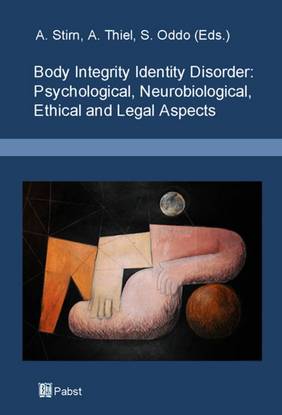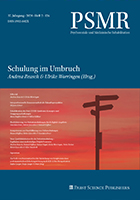There are three interrelated groups:
- Devotees are sexually attracted to people with disabilities, but are not themselves disabled.
- Pretenders behave as though they have a disability by using assistive devices such as braces, wheelchairs, or canes unnecessarily. They feign impairment , perhaps as a point along a developmental continuum. Many pretenders evidence a sexual component.
- Wannabes desire to become disabled and sometimes go to extraordinary lengths to self amputate or have a healthy part of their bodies surgically removed. Regardless of the encompassing diagnostic label, individuals´ goals are not homogenous. Some seek paralysis, while others seek removal.
Some individuals describe a progression from devotee to pretender to wannabe and then ultimately to successful amputation. The age of onset varies widely; a significant number of BIID-individuals have been aware of this preference since their youth.























